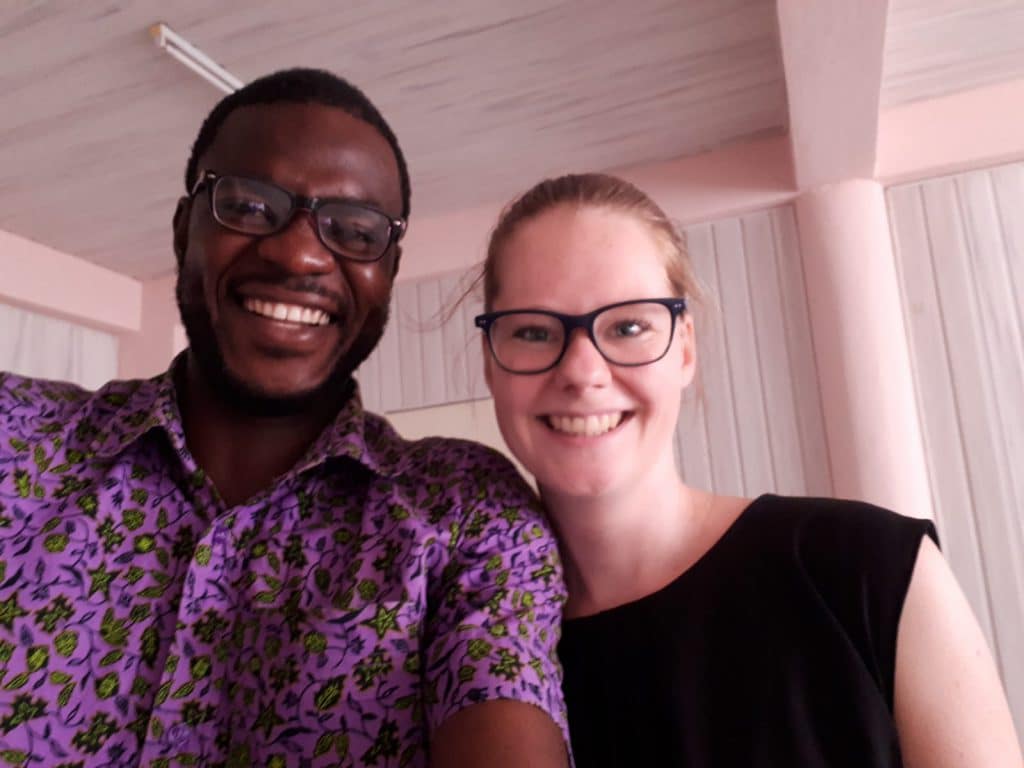FMS researcher Anne is in Ghana to talk about migration. Why do people want to migrate? How do they see their future? And what policy could be implemented to prevent irregular migration? Read her newest story here!
More than two weeks ago my last, and very busy, week in Ghana started. A week with several meetings every day, and on top of that I had to prepare to leave this beautiful country again. It was also a week in which I, once again, realised how lucky I am for being born in the Netherlands. For me, taking that plane back to the Netherlands was easy. But for many of my peers in Ghana, it is something they might never be able to experience because getting a visa to enter Europe is often very hard.
Saying goodbye
This month in Ghana gave me some great insights into the whole debate concerning irregular migration from African countries to Europe. Of course, Ghana is only one example of these countries and the experiences of Ghanaians are different from those in for example Senegal, Congo or Nigeria. But some of the key reasons for people to migrate illegally I heard will be applicable to more countries, I believe. For Ghana these reasons first of all involved the lack of job opportunities, especially for the youth. But a distrust in the national government, the global (economic) imbalance, and restrictive visa policies also Ghanaians them consider irregularly migration.
Being able to travel
Being able to travel is something I take for granted most of the time. For me, it’s relatively easy. Sometimes you’ll need vaccinations and/or a visa, but most of the time these are just a formality. This is not the case for many young Ghanaians though. Of course, travelling can be expensive in the first place, but mostly getting a visa to be able to go to Europe takes a lot of effort. Embassies have noted that they received a lot more visa applications over the last few years. And after talking to young Ghanaians having tried to obtain a visa, I realised that for many of them their visa application was simply refused.
Most of the experts I talked to in Ghana, on the other hand, have travelled in and out of Europe, the United States and many other countries just as easily as I do. They are able to obtain a visa and none of them had, for that reason, any interest in trying to stay in one of the countries they visited. In the remainder of my research, this is something I want to figure out better: can visas that allow for multiple entries and that can be used in a longer time period reduce irregular migration?
Inequalities
Another important factor that impacts migration is the economic imbalance in the world. As someone said: “It’s important that we produce things here in Ghana and use labour from here. There’s a world market, so anything that is successful anywhere else can also be successful here.” Therefore it is important that within Europe we also need to look at our own policies and make sure these are fair and inclusive, especially with regard to developing countries.
The role of governments
The distrust in the government was also something many experts mentioned when talking about the causes of irregular migration. People, and mainly the young generation, lose hope in the government and thereby do not believe in a better life in Ghana anymore. One of the people I spoke to said: “Politicians don’t listen to the people”, and someone else added: “There is a huge gap between visionary statements by the government and the reality on the ground”. This shows that the youth needs to be empowered to be able to be part of the governance process. Only if they feel like they are heard they can believe in a better future for and within their country.
This was my last blog on Ghana. In February I will travel to Tunisia to meet stakeholders. Will there be big differences in the way people look at migration between these two African countries? According to this research by the German FES, 90% of the young generation in Tunisia would like to leave the country! How do Tunisians think about migration, why do young Tunisians want to leave and where would they like to go to?




